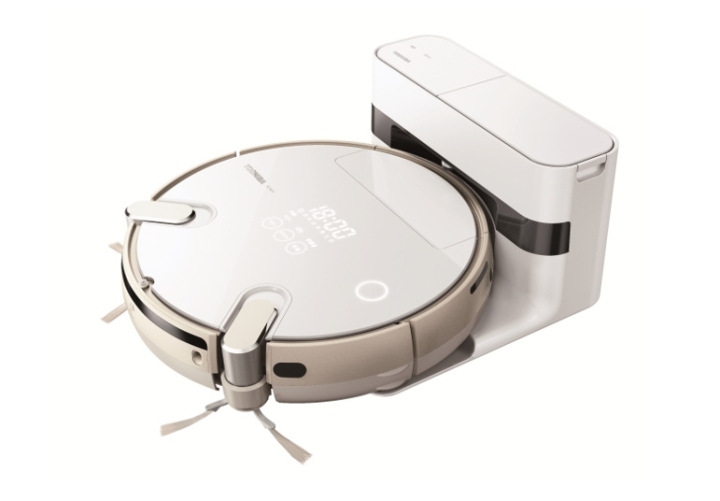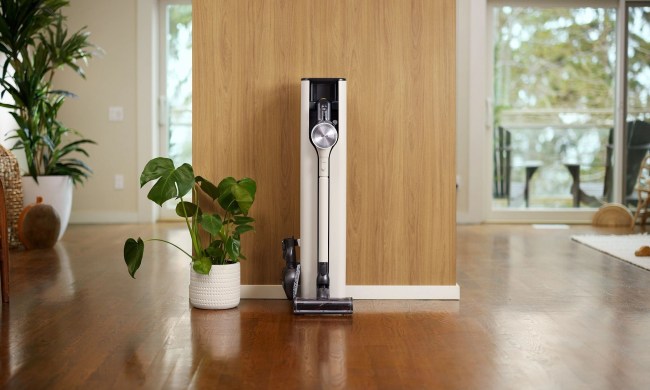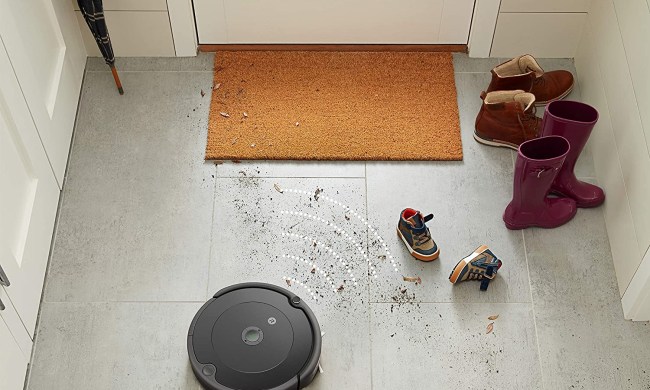
Swinging for the fences, Toshiba has outfitted it’s latest robo vacuum with not one, not eight, but a grand total of 27 different sensors. What exactly do they do? Well, since detailed specs aren’t available at this point, we’re not 100-percent sure, but Toshiba’s website does offer up a few tidbits of information that suggest the bot will boast a few capabilities you can’t find anywhere else.

In addition to a bevy of bump sensors and all the requisite obstacle avoidance tech you’d expect from such a device, the Torneo Robo is outfitted with special infrared and acoustic sensors that allow the bot to avoid collisions, and even see through glass furniture. Speckled along its sides you’ll also find a slew of proximity sensors, all of which are designed to keep the bot near wall without actually touching it, allowing it to get super close to the edge without scraping up your paint.
And that’s not all — arguably the coolest feature on this robot (and one we wouldn’t be surprised to see other robot vacuum makers incorporate into their future designs) is its docking station. Like most other robovacuums, Torneo Robo will return to its dock when its battery starts to get low — but unlike other bots, while it’s docked, it’ll actually transfer all the dirt and debris it gathered up into a hidden collection chamber in the dock itself. This means you won’t have to empty the bot’s dustbin nearly as much, making the bot much more autonomous and hands-off than its competitors.
All these nifty features don’t come cheap though, as you’ll need to fork over about $1,150 to get one in your home. Even a top-of-the-line Roomba doesn’t cost that much — but then again, Roomba also doesn’t empty its own dustbin.



